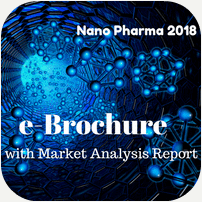Hugo Albrecht
University of South Australia, Australia
Title: Targeting prostate cancer cells with hybrid elastin-like polypeptide/liposome nanoparticles
Biography
Biography: Hugo Albrecht
Abstract
For a long time, prostate cancer has been considered chemo-refractory. Only during the last 10-15 years, have good results been achieved in clinic trials with taxane derivatives such as docetaxel (DTX) and cabazitaxel. However, disabling toxicities including fatigue and neuropathy limit optimal dosage and therefore only modest, life prolonging effects have been achieved for prostate cancer patients. Future treatment outcomes might potentially be improved through targeted delivery of chemotherapeutic compounds into cancer cells while reducing the exposure of healthy tissue. Prostate cancer cells frequently overexpress the gastrin releasing peptide receptor (GRPR) and various strategies have been applied in preclinical settings to target this receptor for the specific delivery of anti-cancer compounds. Recently, it has been proposed that elastin-like polypeptide (ELP)-based, self-assembling micelles with tethered gastrin-releasing peptide (GRP) on the surface might be useful for active targeting of prostate cancer cells. Although poorly soluble chemotherapeutics such as docetaxel have been loaded into the hydrophobic cores of ELP micelles, only limited drug retention times have been achieved. We report the generation of hybrid ELP/liposome nanoparticles which self-assemble rapidly in response to temperature change, encapsulating docetaxel at high concentrations with slow release. The GRP ligand was displayed on the surface and specifically bound to GRP receptor expressing PC-3 cells as demonstrated by flow cytometry. This novel type of drug nanocarrier was successfully used to reduce cell viability of prostate cancer cells in vitro through the specific delivery of docetaxel.
Image

Figure: Specific targeting of prostate cancer cells with hybrid ELP/liposome nanoparticles.
Recent Publications:
1. Zhang W, Garg S, Eldi P, et al (2016) Targeting prostate cancer cells with genetically engineered polypeptide-based micelles displaying gastrin-releasing peptide. Int J Pharm. 513 (1): 270-279.
2. Shi P, Aluri S, Lin YA, et al (2013) Elastin-based protein polymer nanoparticles carrying drug at both corona and core suppress tumor growth in vivo. J Control Release. 171 (3): 330-338.
3. Na K, Lee SA, Jung SH, Hyun J and Shin BC (2012) Elastin-like polypeptide modified liposomes for enhancing cellular uptake into tumor cells. Colloids Surf B Biointerfaces. 91: 130-136.
4. Pereira S, Egbu R, Jannati G and Al-Jamal WT (2016) Docetaxel-loaded liposomes: The effect of lipid composition and purification on drug encapsulation and in vitro toxicity. Int J Pharm. 514 (1): 150-159.
5. Naguib YW, Rodriguez BL, Li X, Hursting SD, Williams RO 3rd and Cui Z (2014) Solid lipid nanoparticle formulations of docetaxel prepared with high melting point triglycerides: in vitro and in vivo evaluation. Mol Pharm. 11 (4): 1239-1249.

